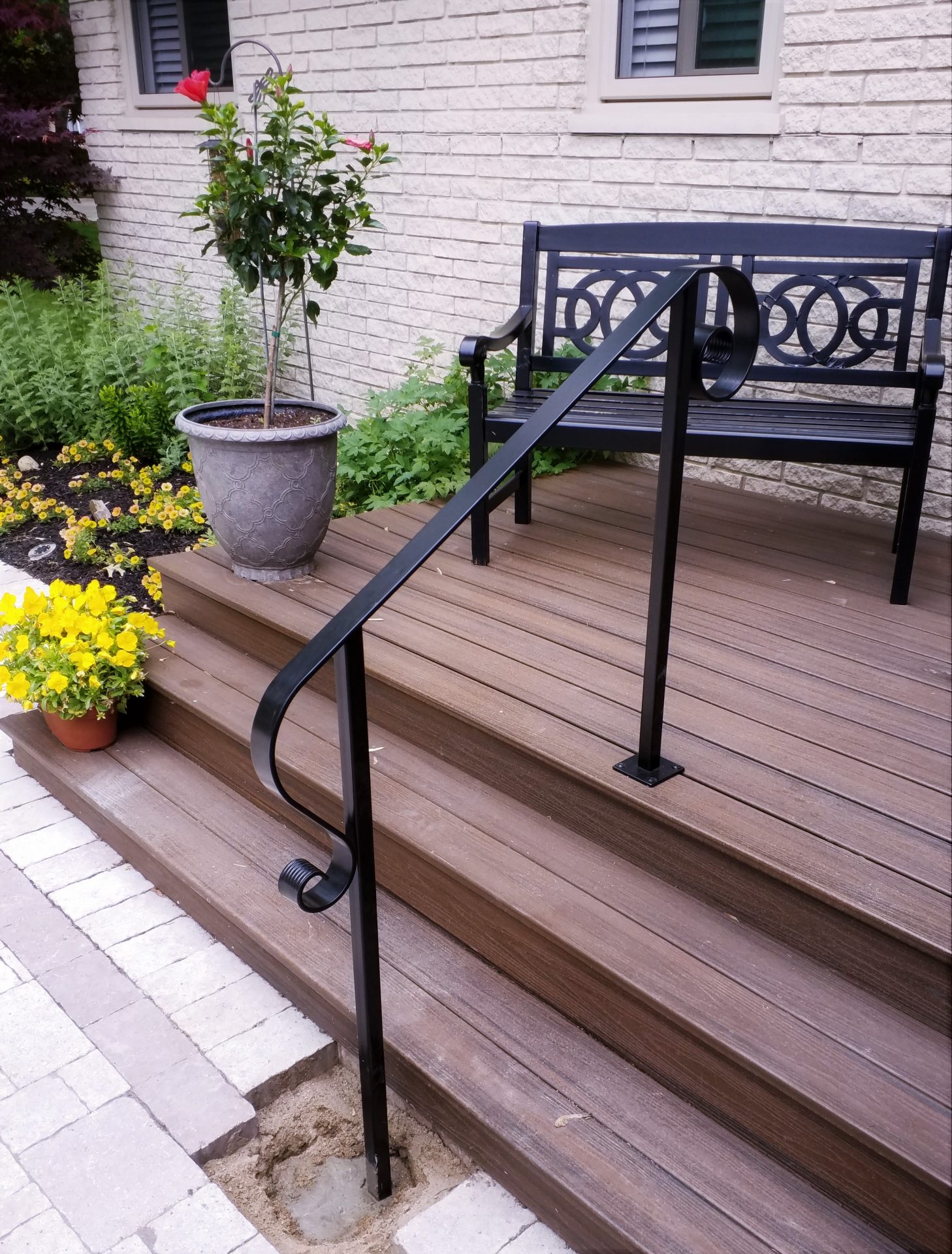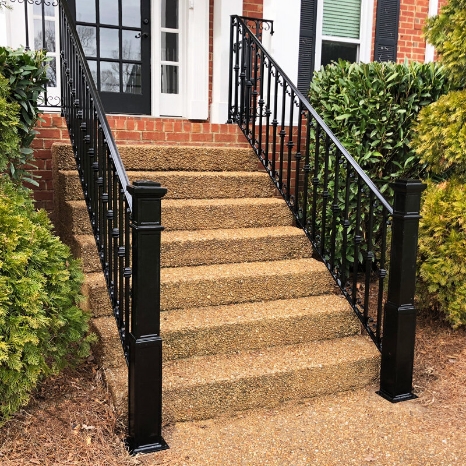Introduction to Decorative Outdoor Handrails
Decorative outdoor handrails not only provide safety and support but also serve as an attractive architectural feature in your home’s exterior design. Drawing from my personal experience, choosing the right handrail can make a significant difference in your outdoor space, both in functionality and style. Let’s dive deeper into the world of decorative outdoor handrails!
Why Install Decorative Outdoor Handrails?
There are numerous reasons to consider decorative outdoor handrails for your home:
- Safety: They offer crucial support to prevent falls, especially for seniors and children.
- Aesthetics: They enhance the visual appeal of stairs, decks, and porches.
- Value Addition: Well-chosen handrails can increase your home’s resale value.
- Customization: With various styles, colors, and materials available, you can create a unique look.
Types of Decorative Outdoor Handrails
When it comes to decorative handrails, the options are vast. Here’s a breakdown of some popular types:
1. Wood Handrails
Wood handrails offer warmth and traditional charm. They can be stained or painted to match your home.
Pros:
- Natural look
- Easy to customize
Cons:
- Requires regular maintenance
- Can be prone to rot and pests
2. Metal Handrails
Metal handrails, such as aluminum or wrought iron, offer durability and modern aesthetics.
Pros:
- Highly durable
- Low maintenance
Cons:
- Can get hot in the sun
- Limited design options compared to wood
3. Glass Handrails
Glass handrails provide a sleek and contemporary look while maintaining an unobstructed view.
Pros:
- Modern appeal
- Easy to clean
Cons:
- More expensive
- Requires careful installation
How to Choose the Right Decorative Handrail
Choosing the right decorative handrail involves several considerations:
- Style: Consider the architecture of your home and choose a handrail that complements it.
- Material: Think about the durability and maintenance of various materials.
- Budget: Set a clear budget as costs can vary significantly based on material and style.
- Local Codes: Ensure compliance with local building codes regarding height and spacing.

Decorative Outdoor Handrail Installation: A Step-by-Step Guide
Installing decorative outdoor handrails can seem daunting, but with the right approach, it can be a rewarding DIY project. Here’s a step-by-step guide based on my own experience:
Step 1: Gather Your Materials
- Handrail kit
- Drill
- Screws and anchors
- Measuring tape
- Level
- Safety goggles
Step 2: Measure the Area
Carefully measure the length where the handrail will be installed and mark the appropriate heights.

Step 3: Install the Brackets
Using the level, mark where the brackets will go on the wall or posts, ensuring they are evenly spaced and secure.
Step 4: Attach the Handrail
Once the brackets are securely attached, carefully fit the handrail onto the brackets and secure with screws.

Step 5: Final Touches
Check everything is level and secure. Clean up any debris and enjoy your newly installed handrails!
Comparing Decorative Outdoor Handrails: A Table Overview
| Type | Pros | Cons | Best For |
|---|---|---|---|
| Wood | Natural look, easy to customize | Requires maintenance, prone to rot | Traditional homes |
| Metal | Durable, low maintenance | Can get hot, limited design options | Modern aesthetics |
| Glass | Modern appeal, unobstructed views | More expensive, careful installation needed | Contemporary designs |

Top Decorative Outdoor Handrail Designs
Here’s a look at some of the top designs trending in decorative outdoor handrails:
1. Rustic Wooden Handrails
These handrails often use reclaimed wood, adding character and charm.
2. Sleek Metal Railings
With minimalist designs, these railings pair well with contemporary homes.

3. Ornate Wrought Iron
Wrought iron handrails can include intricate designs, perfect for Victorian-style homes.
4. Modern Glass Panels
Glass panels provide a sleek look, often used in modern builds with open spaces.

Maintenance Tips for Decorative Outdoor Handrails
Maintaining your decorative outdoor handrails is crucial for longevity:
Wood Handrails
Regularly inspect for rot and pests, and re-stain or paint every few years.
Metal Handrails
Check for rust and repaint if necessary. Clean regularly to maintain appearance.

Glass Handrails
Use glass cleaner to keep panels clear, and check for cracks periodically.
Pros and Cons of Decorative Outdoor Handrails
Like any home improvement project, decorative outdoor handrails come with their own advantages and disadvantages.
Pros:
- Increased safety
- Enhanced curb appeal
- Potential value increase for your home
- Numerous styles and materials to choose from
Cons:
- Initial cost can be high depending on materials
- Maintenance required to keep them looking good
- Installation may require professional help for some designs
Frequently Asked Questions (FAQs)
What materials are best for outdoor handrails?
The best materials depend on your environment and style preferences. Wood is great for traditional designs, metal for durability, and glass for modern aesthetics.
How tall should outdoor handrails be?
Typically, outdoor handrails should be between 34 to 38 inches above the stair nosing, but always check local building codes.
Can I install decorative handrails myself?
Yes, many decorative handrail systems are designed for easy installation. However, complex designs may require professional assistance.
How do I clean my decorative handrails?
Each material has specific cleaning requirements. Generally, use a damp cloth and mild detergent for wood, metal, and glass surfaces.